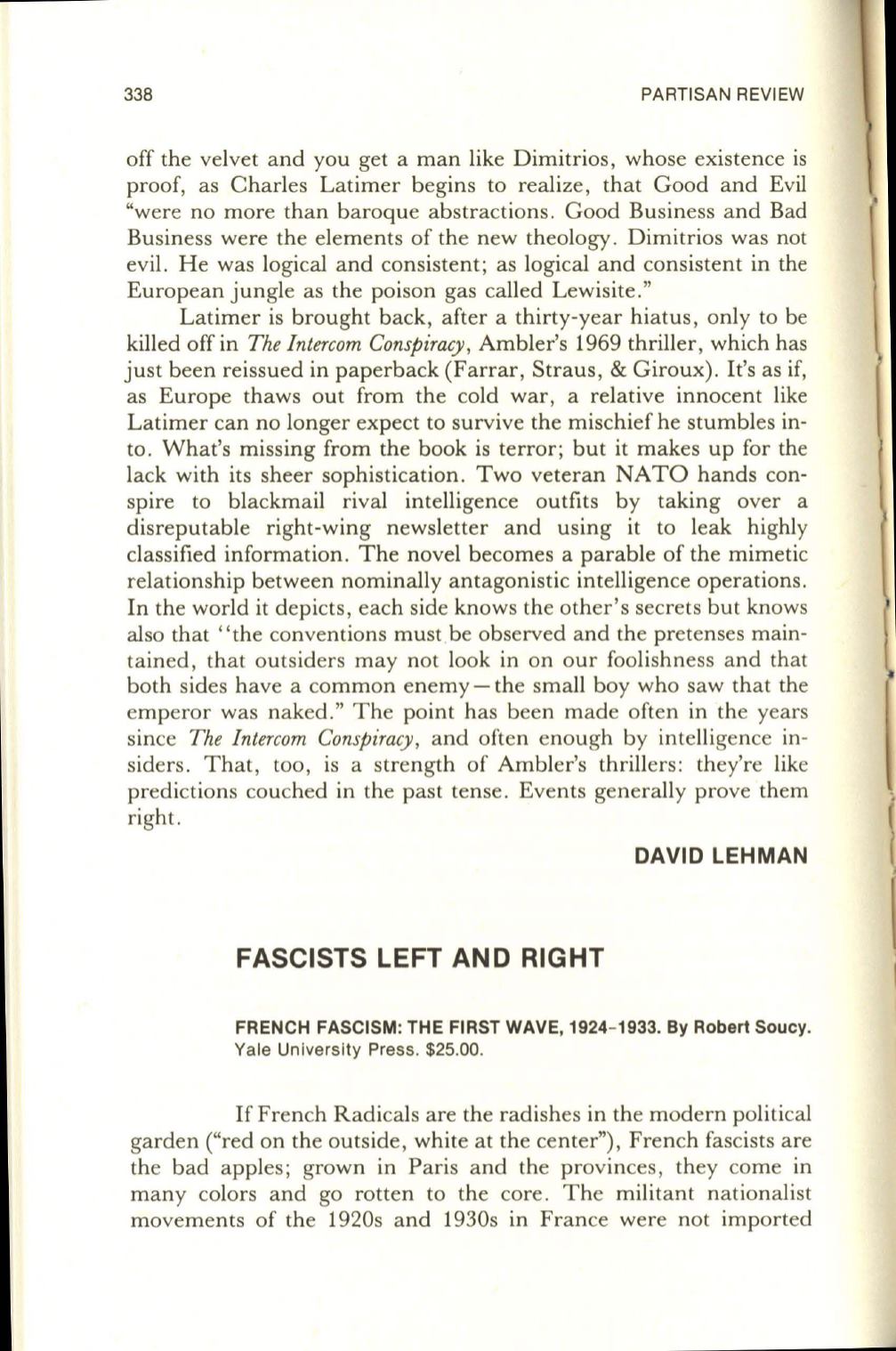
338
PARTISAN REVIEW
off the velvet and you get a man like Dimitrios, whose existence is
proof, as Charles Latimer begins to realize, that Good and Evil
"were no more than baroque abstractions. Good Business and Bad
Business were the elements of the new theology. Dimitrios was not
evil. He was logical and consistent; as logical and consistent in the
European jungle as the poison gas called Lewisite."
Latimer is brought back, after a thirty-year hiatus, only to be
killed off in
The Intercom Conspiracy,
Ambler's 1969 thriller, which has
just been reissued in paperback (Farrar, Straus,
&
Giroux). It's as if,
as Europe thaws out from the cold war, a relative innocent like
Latimer can no longer expect to survive the mischief he stumbles in–
to. What's missing from the book is terror; but it makes up for the
lack with its sheer sophistication. Two veteran NATO hands con–
spire to blackmail rival intelligence outfits by taking over a
disreputable right-wing newsletter and using it to leak highly
classified information. The novel becomes a parable of the mimetic
relationship between nominally antagonistic intelligence operations.
In the world it depicts, each side knows the other's secrets but knows
also that "the conventions must ,be observed and the pretenses main–
tained, that outsiders may not look in on our foolishness and that
both sides have a common enemy - the small boy who saw that the
emperor was naked." The point has been made often in the years
since
The Intercom Conspiracy,
and often enough by intelligence in–
siders. That, too, is a strength of Ambler's thrillers: they're like
predictions couched in the past tense. Events generally prove them
right.
DAVID LEHMAN
FASCISTS LEFT AND RIGHT
FRENCH FASCISM: THE FIRST WAVE,
1924-1933.
By
Robert
Soucy.
Yale University Press. $25.00.
If
French Radicals are the radishes in the modern political
garden ("red on the outside, white at the center"), French fascists are
the bad apples; grown in Paris and the provinces, they come in
many colors and go rotten to the core . The militant nationalist
movements of the 1920s and 1930s in France were not imported


